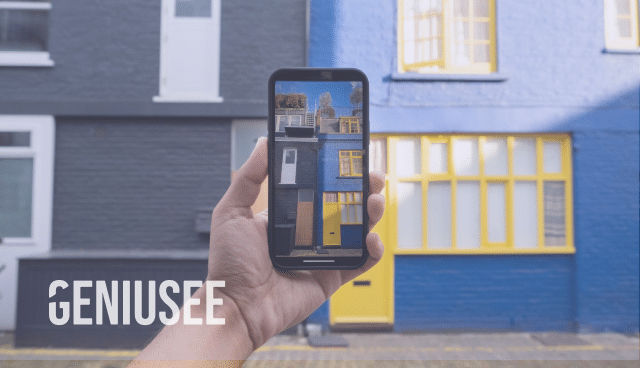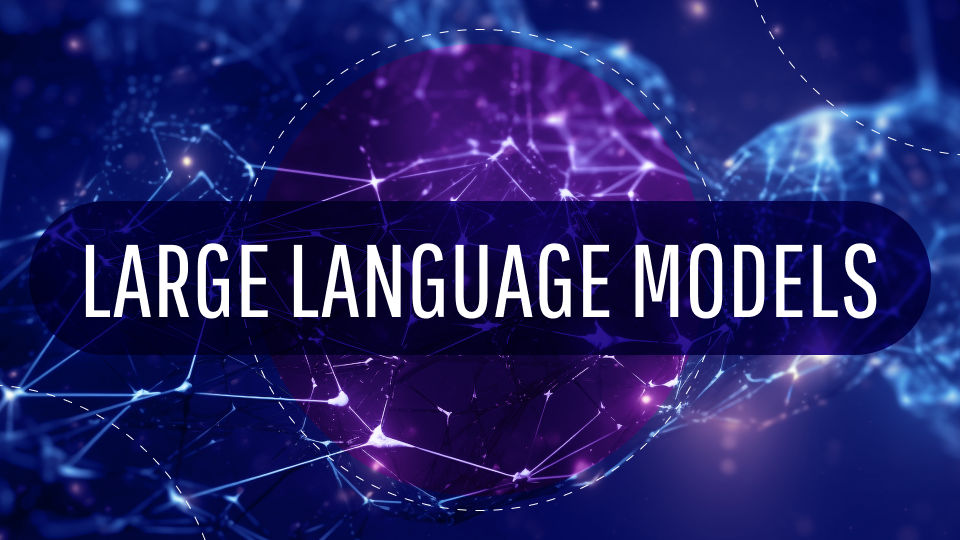- What is a Property Management System (PMS)?
- Types of Custom Property Management Software
- Benefits of Building a Property Management Software
- Must-have features of Property Management Software
- Most Popular Property Management Websites
- Step-by-Step Guide to Property Management Software Development
- Property Management Software Development Сosts
- Summary
- FAQ
The real estate market is highly competitive, and managing a portfolio of properties can be a complex and time-consuming task. Property managers are responsible for everything from marketing and leasing properties to collecting rent and handling property maintenance requests. As a result, many real estate professionals are turning to software solutions to help them streamline their processes and improve their bottom line.
If you're interested in developing property management solutions for the real estate industry, you're in the right place. In this article, we'll discuss the steps you need to take to create a successful software product that meets the unique needs of property managers and landlords. We'll cover everything from identifying the right features to choosing the right development team and launching your product.
Whether you're a seasoned real estate professional or a software developer looking to break into the property management sector, the following guide will provide you with the knowledge and tools you need to succeed. So let's dive in and get started!
In This Article:
What is a Property Management System (PMS)?
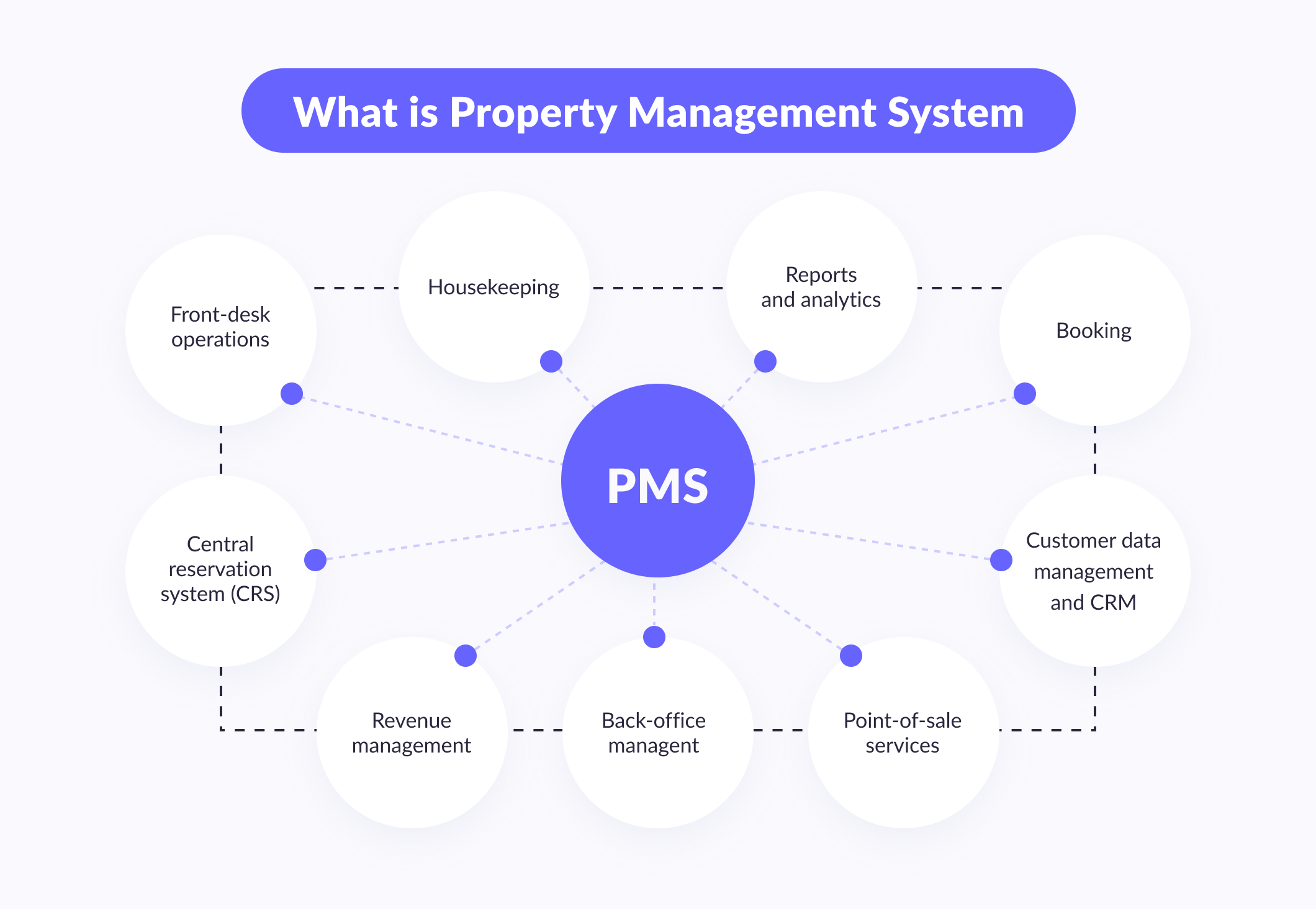
Property management system software is a tool that allows you to control the use of buildings and structures for commercial real estate purposes. The scope of the program includes leasing, property management in terms of space use, control of routine operations to maintain buildings in a functional state (cleaning, repairs, communications), as well as customer relationship management.
Types of Custom Property Management Software
There are many different types of custom property management systems that can be developed to meet the unique needs of real estate businesses. Here are some types of property management software:
- Tenant Management Software. This type of software is designed to help real estate agents run their tenants more effectively. Such residential property management systems may include features like online rent payments, maintenance request tracking, property availability & room availability, lease tracking, virtual tours, and tenant communication tools.
- Financial Management Software. Financial management software can help property managers keep track of their financials more easily. It can contain such features as automated rent collection, accounting and bookkeeping tools, online payments, revenue management, and reporting and analytics.
- Maintenance Management Software. Maintenance management software can help property managers track and manage maintenance requests more efficiently. For this type of PMS, you need the next features - work order management, vendor management, and scheduling tools.
- Marketing And Leasing Software. Marketing and leasing software can help property managers promote their properties more effectively and streamline the leasing process. It should include features like online listing management, lead tracking, and tenant screening.
- Mobile Property Management Software. Mobile property management software is designed to allow property managers to access and manage their properties from their mobile devices. It will consist of features like remote property inspections, virtual assistants, on-the-go maintenance request tracking, and mobile rent payments.
These are just a few examples of the many types of custom property management systems that can be developed. The right software for your business will depend on your specific needs and goals, so it's important to work with a development team that can help you identify the features that are most important for your business.
Benefits of Building a Property Management Software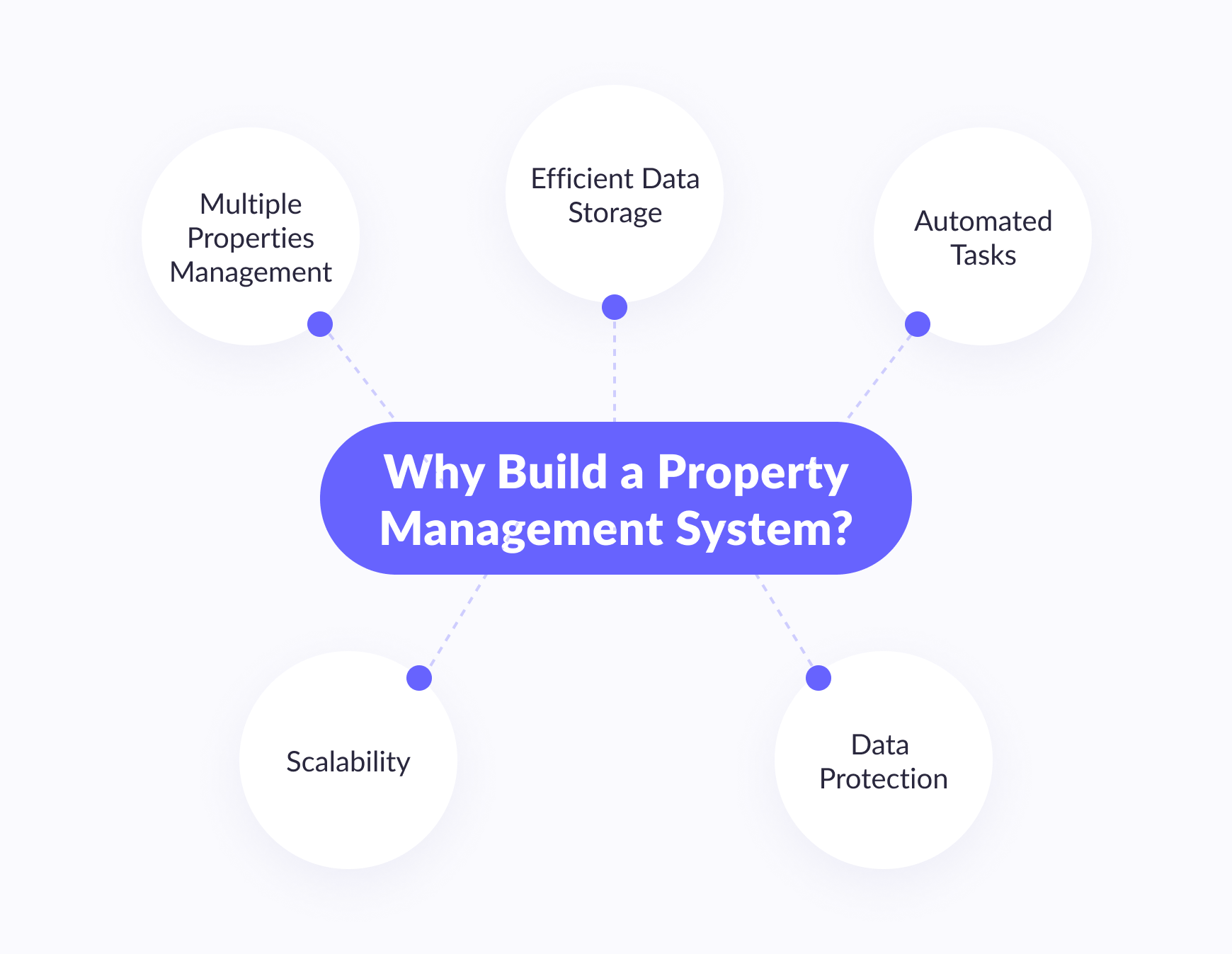
1. Access to information in real-time
With an efficient property management solution, you don't have to store all the information you need in spreadsheets on your computer or even huge stacks of documents. In fact, this limits you to work only from your office building. However, web-based property management software allows you to work from anywhere from the comfort of your laptop, tablet, or smart device. What's more, important multiple property management data is always updated automatically and in real-time. Property owners, managers, operators as well as tenants can access all the information they need from anywhere, right from their connected devices.
2. Improved communication flow
To be honest, property management involves many processes that require seamless communication. For example, tenants must pay rent on time, and report any maintenance requests promptly and at any time. Industrial property management software ensures good and timely communication between tenants, managers, owners, etc.
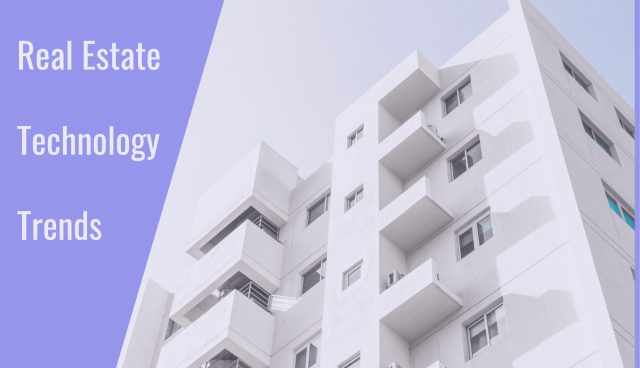
More on the topic
Top 10 Real Estate Technology Trends In 2022–2025
Check the latest tech trends in Real Estate industry to stay ahead of the curve.
I'm on it3. Reducing administrative work
Property management software works differently and efficiently. Data is extracted, analyzed, and updated automatically. You can then create detailed reports detailing all needs such as demand, regional control as well as the company's financial cash flows.
4. High protection level of confidential data
With industrial property management systems, you really don't have to worry about data being leaked into unauthorized hands. In fact, all data storage is securely stored on online servers with additional levels of encryption. This means that only authorized persons can access specific data.
5. Provides online payment options
Property management software is designed to make all payment processes easier and more efficient. This allows tenants to pay rent using their phones. This way you receive payments immediately and receipts are generated in real-time. In addition, it makes it extremely easy for a property manager to track and control payments from each tenant, as well as automatically generate real-time financial reports.
Must-have features of Property Management Software
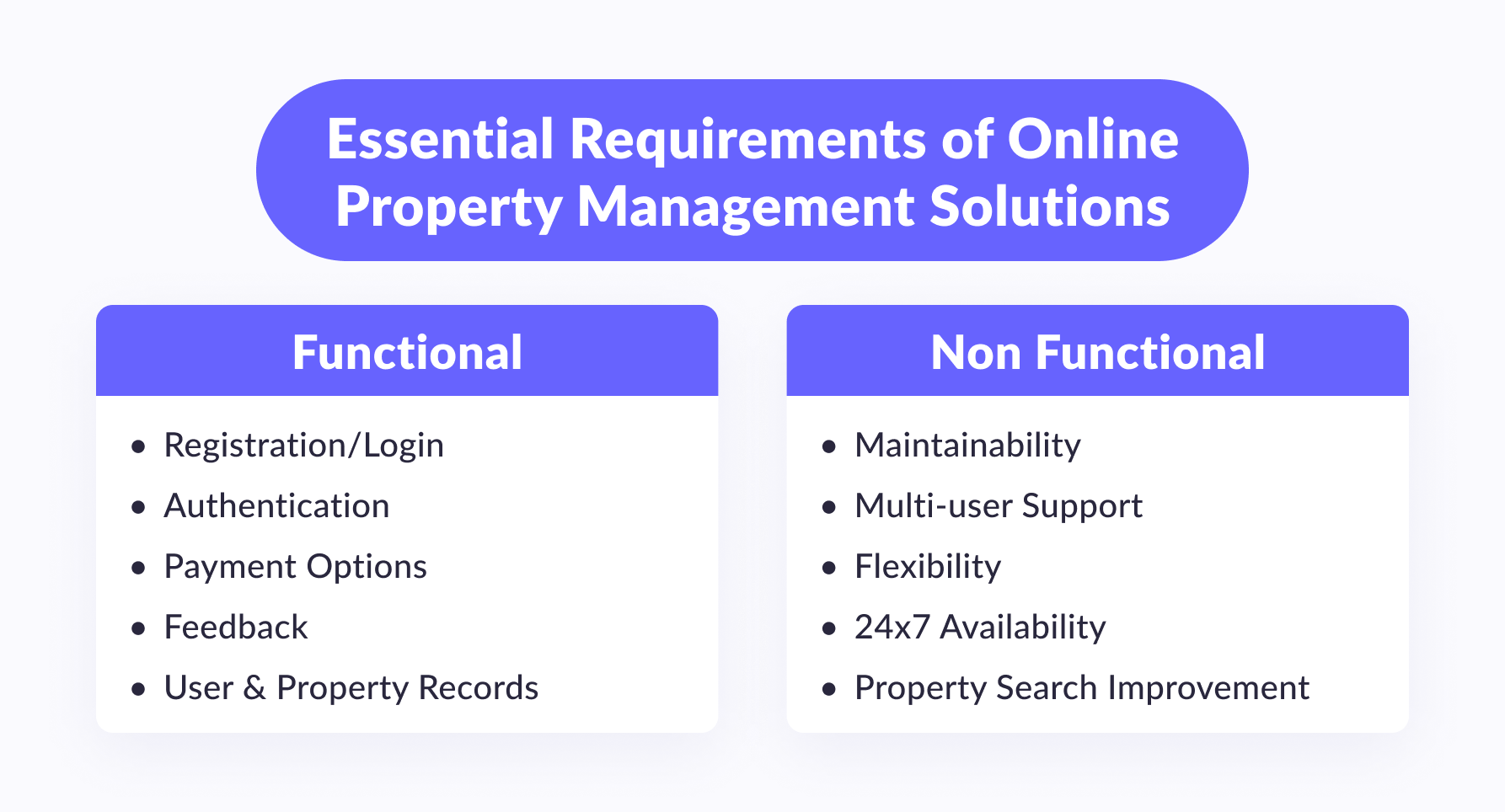
- Tenant and lease management. The PMS software should enable you to manage tenant information, lease agreements, rental payments, and move-in/move-out dates.
- Accounting and financial management. The platform should have accounting and financial management features such as rent collection, expense tracking, and financial reporting.
- Maintenance and work order management. Your product should allow you to manage maintenance requests, schedule repairs, and track work orders.
- Communication tools. It also should have communication tools that allow you to contact renters, vendors, and other stakeholders.
- Online payment processing. It is one of the main features and it should enable online payment processing for rent and other fees.
- Document management. The PMS platform should allow you to store and manage all important documents related to your properties, such as online leases, contracts, and insurance policies.
- Reporting and analytics. The software should have reporting and analytics features that enable you to track key metrics such as occupancy rates, rental income, and maintenance costs.
- Mobile accessibility. Your custom property management system should be accessible from mobile devices, allowing you to manage your properties on the go.
- Integration with other software. It also should integrate with other software tools that you use, such as accounting software, payment processors, and marketing strategy tools.
- Security. The software should have strong security features to protect sensitive information such as tenant and financial data.
Most Popular Property Management Websites
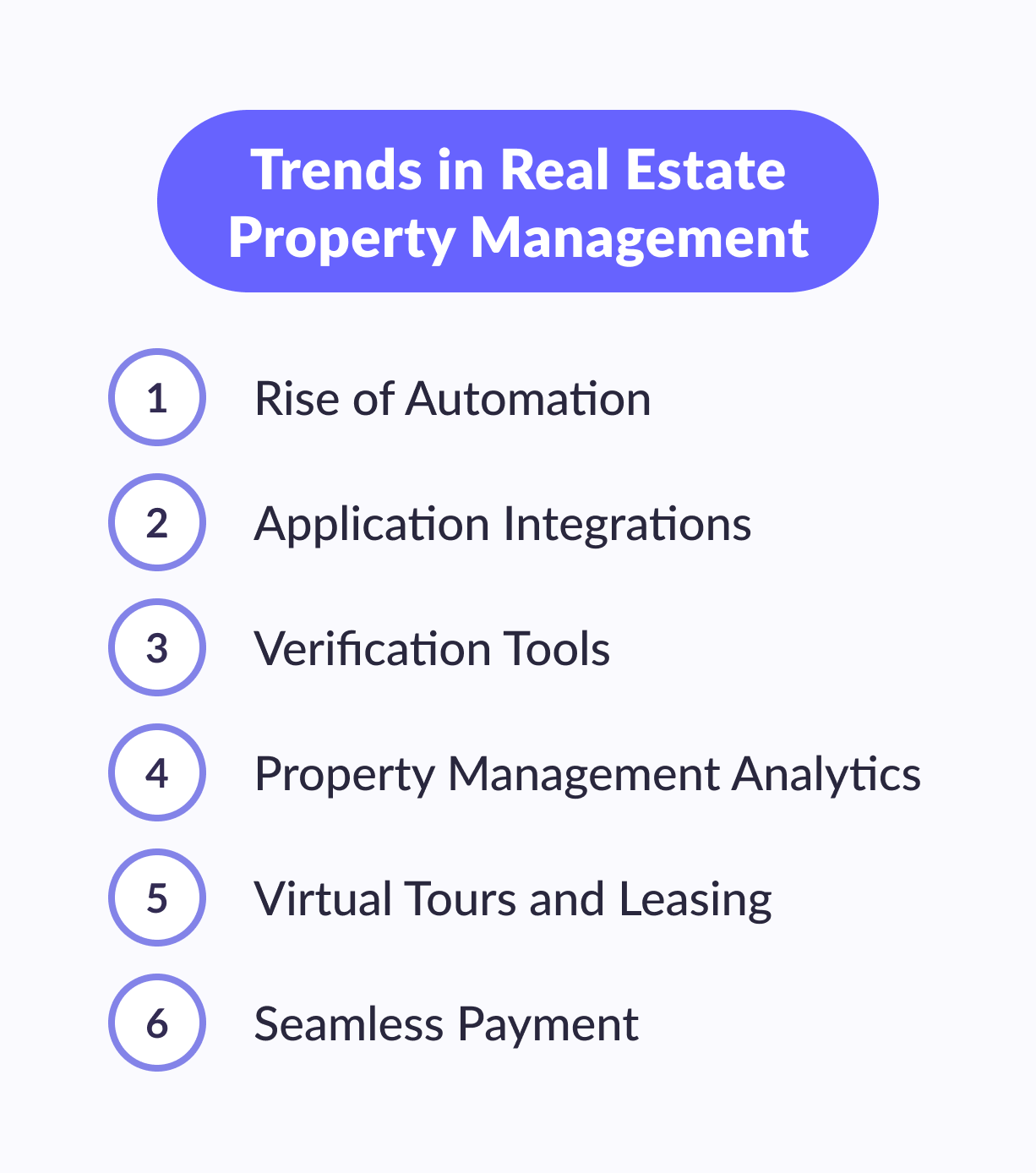
There are several popular property management websites, each with its own unique features and benefits. Here are some of the most popular property management websites:
1. Zillow Rental Manager
Zillow is a well-known USA-based real estate rental property management software that also offers different useful tools for managers. Zillow Rental Manager allows landlords to post and manage rental listings, screen tenants, and collect rent online.
2. Cozy
Cozy is a popular US property management website that offers free online rent collection, tenant screening, and property management tools. They also offer a premium service with additional features.
3. Buildium
Buildium is a condo management platform designed for landlords and property managers. It has a range of features including rent collection, tenant screening, accounting, and maintenance management.
4. Rentec Direct
Rentec Direct is a property management software that offers features such as online rent collection, tenant screening, and accounting. It also offers a free landlord and tenant portal.
5. Appfolio
Appfolio is a cloud-based property management software that offers features such as rent collection, tenant screening, accounting, and maintenance management. It is designed for property managers and landlords who manage multiple properties.
6. Rent Manager
Rent Manager is a commercial property management system designed for landlords and property managers. It offers features such as online rent collection, tenant screening, and accounting.
Step-by-Step Guide to Property Management Software Development
1. Define the Scope
Before starting the development process, it is essential to define the scope of the software, including the functionalities it should provide. This should include features such as property listings, tenant management, maintenance tracking, rental income tracking, and financial reporting. You also can use a software estimator to find the approximate price of your software development process.
2. Choose a Platform
Next, you will need to choose a development platform to build the software. This step is often included in the discovery phase service, which can be ordered from the contractor. Popular choices include web-based, mobile-based, or desktop-based applications. Consider the needs of your users and your software development team when making this decision.
3. Choose the Right Development Team
Select an experienced team of developers, designers, and testers who have worked on similar projects. Make sure the team has the necessary technical skills and expertise to develop the software according to your requirements.
4. Create a Design Plan
The next step is a creation of a design plan for the software. It includes the user interface, user experience, and software architecture. Consider the needs of the end-users, including landlords, property managers, and tenants.
5. Develop the Software
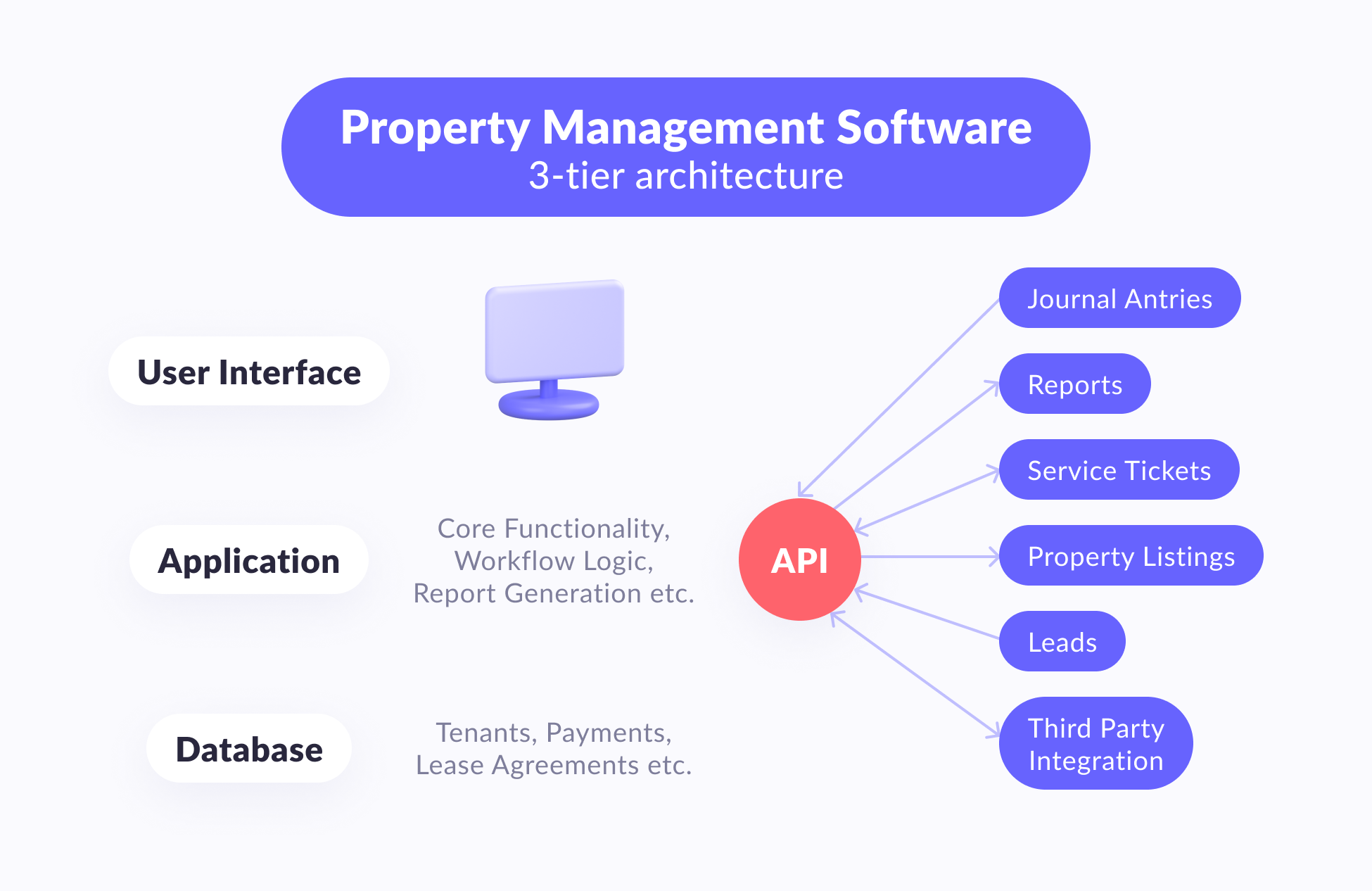
With the design plan in place, the development team can begin building the software. This process should include coding, testing, and bug fixing.
6. Integrate Third-Party Services
Custom PMS often requires integration with third-party services, such as payment processors or property listing websites. Ensure that the software can integrate with these services seamlessly.
7. Test and Debug
Once the software is developed, it's essential to test and debug it thoroughly to ensure that its functions work correctly and meet all of the project requirements.
8. Launch and Deploy
When the software has been fully tested and debugged, it can be launched and deployed. Make sure that the software is properly documented and that user manuals and training materials are available.
9. Provide Ongoing Support
Property management software requires ongoing customer support and maintenance to ensure that it continues to function correctly. Provide user support and maintenance services to help users with any issues they may encounter.
Property Management Software Development Сosts
In the world of property management app development, determining the exact cost without knowing the specifics seems like an impossible feat. There are four main factors that play a significant role in determining the cost of building property management software: development time, hourly rate, features, and complexity.
Any company that promises to create an app within a limited budget without knowing the app's features is simply using a marketing tactic. It's crucial to consider and evaluate the features required to create a property management app to provide accurate estimations.
For an MVP solution, the cost starts from USD 35,000 and takes around 2 to 4 months to develop. However, if you desire full-fledged property management software from scratch with additional features and a modern technology stack, the cost can increase from USD 50,000 to USD 100,000, or even surpass USD 150,000+ depending on the complexity of the app.
Instead of assuming and trusting these estimations blindly, it's recommended to book a consultation with experts to discuss project details and receive a free estimate for your app project. This way, you can receive an accurate estimation that suits your specific needs and requirements.


Thank you for Subscription!
Summary
Building property management software for real estate requires careful planning and execution. The software should include features such as property listings, tenant management, maintenance tracking, rental income tracking, and financial reporting.
To create a successful property management software, it is essential to choose a custom development team with the necessary technical skills and expertise. It's also essential to choose the appropriate platform, whether it be web-based, mobile-based, or desktop-based.
By following the tips and ideas from this article, you can successfully develop a custom solution for real estate. Additionally, it's essential to book a consultation with experts to get an accurate estimation of your app project.
By the way
Find out about our Real Estate software development services. Let's hit the market together!
FAQ
What are the mistakes when creating a real estate management system?
When creating a real estate management system, some common mistakes include not properly identifying and analyzing user requirements, underestimating the complexity of the software, and failing to integrate with third-party services. These mistakes can result in a system that doesn't meet user needs, is difficult to use, and lacks essential features.
Why to outsource real estate management software development?
Outsourcing real estate management software development can provide several benefits, including access to a larger pool of technical expertise, reduced costs, faster time-to-market, and the ability to focus on core business activities. Additionally, outsourcing can provide flexibility in scaling development resources up or down as needed.
How to find a reliable real estate software development company?
To find a reliable custom real estate software development company, it's essential to consider factors such as experience, technical expertise, portfolio, client reviews, and communication skills. It's also essential to ask for references and conduct thorough research to ensure that the company has a proven track record of delivering quality software products.







